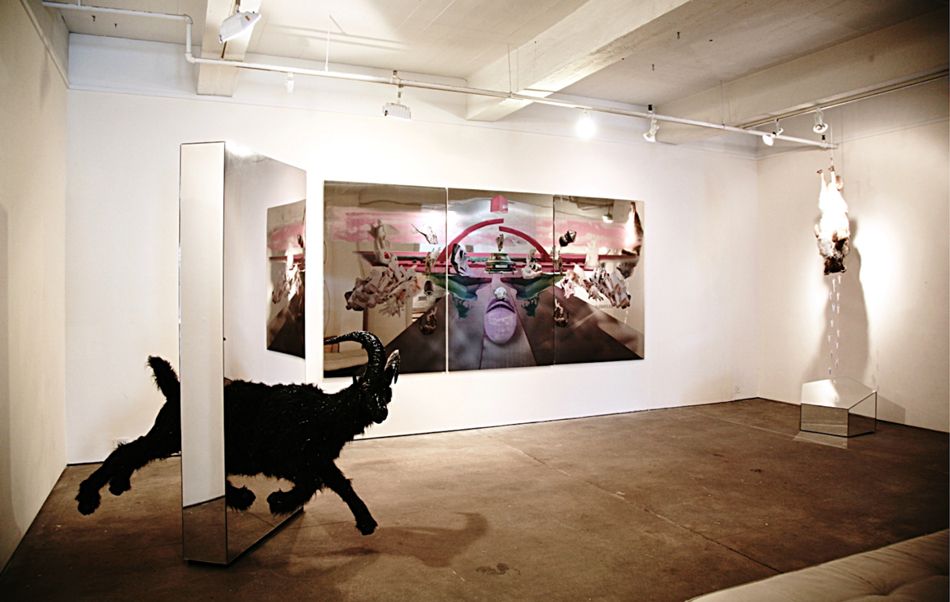Excitement over advancements in technology can overwhelm the longstanding foundations of inspiration and information from the natural world and ancient cultures, making those references harder to find, or see. However, there are artists and creatives who work towards bringing these different worlds closer together, drawing elements from both as supports and contrasts.
Andrea Stanislav is an American artist based in Bloomington, Indiana and New York, USA who strives to bridge modern and natural worlds with her art as commentary on the disharmony and distance society experiences with our natural and historical past. Stanislav utilizes multiple creative platforms and a variety of different mediums, including sculpture, video, installations, digital printing on mirrors and more.

Stanislav speaks often on the “architecture of the empire” in reference to St. Louis, which she frequently visited as a child. In a publication for her installation Convergence Infinité, Stanislav states, “I am interested in how the past bleeds through the present. How ghosts of empires call out to our own, with otherworldly voices.”
Stanislav’s idea of the empire in Convergence Infinite involves two areas that she connects with St Louis, the largest prehistoric civilization north of Mexico where the Cahokia Mounds are today, and the Gateway Arch that is seen to embody American capitalism and the emergence of American growth during the nineteenth-century. Stanislav’s sculptures, Apogee 1200 and Apogee 1969, expose the fragile construct of the empire when juxtaposed with the natural form represented by the eagle.
Stanislav’s interest in ancient culture and the idea of a modern empire often incorporates a focus on natural forms. This notion is seen in her work entitled River To Infinity, which depicts a horse sculpture with a mirrored river that spanned the exhibition gallery at The Minneapolis Institute of Arts. Surrounding the river are rocks covered in glitter and resin, showing a natural landscape in a not-so-natural material.
Jan Garden Castro writes in a publication on River to Infinity - The Vanishing Points, explaining the artwork's comment on the settlers' quest for more land, power, money and oil that turned the world into a self-polluting and self-destructing battleground — one that most of us are either unaware of or choose to ignore.
“Today we dwell increasingly in the wonderlands of our iPods, BlackBerries, big-screen televisions, movies, and in mirrors and other self-reflecting surfaces that give us not the real thing, but surrogates,” writes Castro. “Most of us have neither the time nor the courage to kayak through the Grand Canyon or ski down Mount Everest or ride a camel from Amarna to Luxor. So we’re left watching Little Big Man and Nature on cable TV, as the real Native Americans remain more or less as hidden as the few remaining patches of wilderness. We have to make a huge effort to see them, and, even with great effort, what we see is literally vanishing before our eyes.”
Andrea Stanislav’s work explores themes of environmental awareness and conservation with her emphasis on the natural world and her overt comments on modern disconnection to ancient empires and communities. By doing so, Stanislav highlights the United Nations Sustainable Development Goal for Life on Land.
To support First Nations communities and help them realize healthy environments and sustainable innovation, you can donate to the Center for Indigenous Environmental Resources. The more support given to the natural world and connections to our environment, the more we will learn and benefit from the beauty, history and inspiration it provides.
